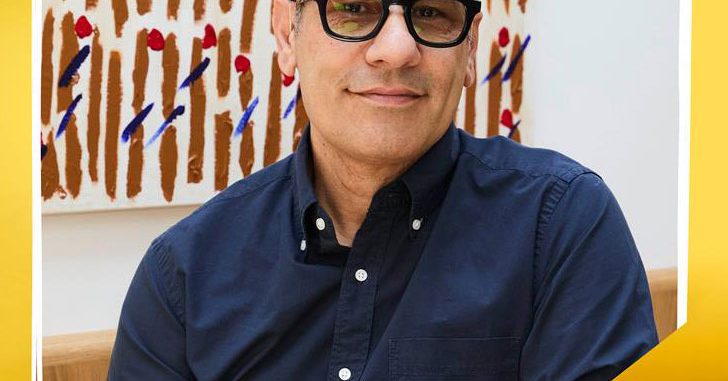From Umbria to Palestine: finding comfort in greens
Tamimi’s journey to Busan began in the hills of Umbria, Italy, where he and his partner escaped during the pandemic. “When you’re in a situation like COVID, you want comfort. You miss home,” he shares. The climate, so reminiscent of Palestine, inspired foraging trips for wild greens, herbs, and berries – ingredients that, with a dash of instinct, became the foundation of his new recipes.
“I started with just drafting simple things – sometimes you just stir fry greens with a little garlic or onion, lemon and sumac,” he says. The simplicity, he insists, is the point: “They are kind of samey in a way, so this is where I come in, building up each dish to make it unique and appealing, but also attractive to look at.”
Recipes with roots: memories and modern twists
For Tamimi, food is inseparable from memory and identity. The recipes in Busan are a tapestry of childhood dishes, family rituals, and the ever-present connection to Palestine. “It’s memories, it’s connection to the family, to what I had as a kid and as an adult,” he reflects. “It’s the connection to land, to the environment, to the seasons.”
But nostalgia doesn’t mean standing still. Tamimi admits to “cheffing up” traditional dishes with new twists, driven by curiosity and a desire to keep things interesting. “I get bored of things after a while. For me, adding things to different dishes satisfies me, but also finds a different link – how can I improve, or make it slightly different?”.
Bread, simplicity, and the joy of sharing
If there’s one thing Tamimi believes belongs at every table, it’s bread. “We eat bread with everything,” he declares. His favourite? “A wholemeal flatbread with fresh oregano in it.” Bread, for Tamimi, is not just food – it’s a mindful process, a symbol of comfort, and a vehicle for sharing.
The same philosophy shapes his approach to recipe writing. “The book doesn’t ask for any exotic or unusual ingredients,” he assures. “It’s all about home cooking, comfort, and easy recipes to follow – you don’t have to get out of your way to get ingredients for it.” For Tamimi, accessibility is everything: “I try to do recipes that are much simpler to follow, not very wordy. People need to feel confident to cook it.”
Flavoursome, gutsy, earthy, seasonal”: the heart of Palestinian food
When asked to sum up Palestinian food Tamimi doesn’t hesitate: “Flavoursome, gutsy, quite earthy, seasonal.” Staples like tahini, za’atar, date molasses, sumac, lemon, and plenty of garlic fill his kitchen. “We’re not shy in using garlic,” he grins.
He cooks Palestinian food at home “almost every second day”, driven by both habit and passion. “My parents cooked really traditional Palestinian food, and my sisters still do. It’s part of preserving the culture and the food, but also a ritual – they do it because of high demand, but also because they enjoy it.”
Changing the way Britain eats
Tamimi’s influence on British food culture is undeniable. “When I arrived in this country in ’97, you couldn’t get any of the ingredients we use now. Now every supermarket stocks tahini and za’atar.” He’s proud of how he’s helped make vegetable-centred, Middle Eastern cooking part of the everyday British table: “At the beginning I thought it was a trend, but actually it’s a way of eating. We taught people how to cook vegetables in a different way, and vegetables are the centre of the whole table.”
Favourite dishes and kitchen wisdom
Tamimi’s go-to comfort dish? “A stew with fava beans, aubergine, tomatoes, and eggs—almost like a shakshuka, but with fava beans and aubergine, finished with sumac onion. You just need lots of bread.” It’s a dish made for sharing, best served in the middle of the table with pickles and chilli sauce.
His best kitchen tip is delightfully practical: “I use the back of a peeler to scoop out all the seeds and fluffy bits from pumpkin or butternut squash. It’s sharp enough to shave it out instead of using a spoon.”
Seasonality, simplicity, and supporting local
If Tamimi could change one thing about how Britain eats, it would be to embrace seasonality. “People in this country don’t know anything about seasonality. We are so spoiled – we have everything in the shops and we’ve lost that connection. For me, seasonality is not just about what’s in season, but also the connection to the land and what we actually grow.”
Good food, for Tamimi, is about quality, simplicity, and supporting local businesses. “Always buy the best quality you can afford. I try to avoid supermarkets because of the packaging, and I believe in supporting local shops. Quite often, you get really fresh, seasonal things.”
A legacy of flavour and connection
Tamimi’s food is more than just sustenance – it’s a bridge between places, people, and memories. Whether he’s dreaming of opening a dedicated Palestinian restaurant in London or writing recipes that bring the taste of home to kitchens everywhere, his message is clear: good food is simple, seasonal, and meant to be shared.
As he puts it, “It’s about the connection – to the food, to the recipes, to your own kitchen. That’s what matters.”
Discover more related content…
Seasonal calendar
Good Food podcast – Kate Humble on the importance of artisan produce and community
Spring greens recipes
Good Food podcast – Niki Segnit on exploring and pairing flavours
Great British recipes with a twist

